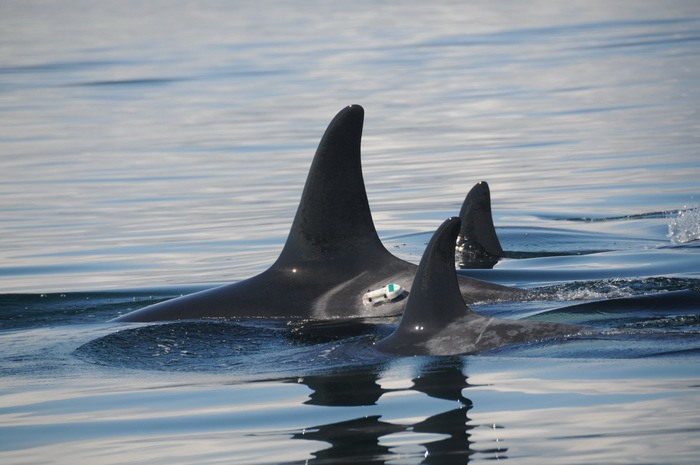A Canadian necropsy revealed that a Southern resident orca was killed by a fungal infection possibly caused by a satellite tag.
According to Fisheries and Oceans Canada, a 20-year-old male killer whale, identified as L95 was found dead near Esperanza Inlet, B.C. on March 30. A necropsy was performed to determine the cause of the animal’s death.
L95 was tagged by National Oceanic and Atmospheric Administration using a satellite-linked limpet-style tag approximately five weeks prior to his death.
On Oct 5, Fisheries and Oceans Canada released news that the necropsy report by Dr. Stephen Raverty, veterinary pathologist, concluded “a fungal infection contributed to the animal’s death. There were several factors in this case that predisposed this whale to a fungal infection at the tagging site, including indications that the animal may have had a compromised immune system.”
Whale activists like Ken Balcomb have long been opposed to tagging whales.
“I’m saddened that a whale died, and that it died due to human impact,” said Baclomb, director for the Center for Whale Research. “I warned NOAA for years that this was a barbaric practice and eventually this [a whale would die] would happen.”
The National Oceanic Atmospheric Association’s press release stated there was a mishap when L95 was tagged on February 23. According to NOAA’s website, “The tag entered the water during an unsuccessful initial tagging attempt and only one of two required sanitation steps was conducted.”
In the aftermath of the necropsy results a panel of veterinarians and biologists met to review the case. They concluded that there were several factors in the whale’s death including incomplete sterilization of the tag, broken pieces of that tag left in the whale and that the object was put too close to significant blood vessels. They also concluded that the orca might have already had a compromised immune system.
Balcomb said two other whales that have been tagged have disappeared, but because they were transient orcas instead of locals, they did not make the news.
In light of L95’s passing, NOAA has halted all satellite-tracked tagging on Southern resident orcas until further review of the practice. The satellite tagging program was created to gather data about the animals that would help recover the species’ population, which is currently listed as endangered.
“There are still about have a dozen other whales out there that have the tagging equipment in them,” said Balcomb.
– Heather Spaulding contributed to this report



